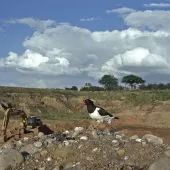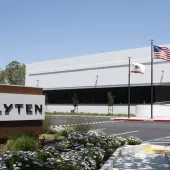Global gathering looks to drive decarbonisation
Leading academics and industry figures are gathering in Lausanne, Switzerland, to discuss ways to drive forward critical research into making concrete, the world’s most used human-made material, net zero.
They are taking part in the Innovandi Global Cement and Concrete Research Network (GCCRN) annual gathering (23 – 25 April), which brings 450 researchers and scientists from more than 40 world-leading universities and academic institutions, as well as business leaders from some of the industry’s top manufacturers and suppliers, together to collaborate on critical research and initiatives focused on achieving net zero concrete, in line with the GCCA’s 2050 Roadmap.
Universities attending include the renowned EPFL in Lausanne, which is hosting the event, alongside researchers from South East University and Wuhan University in China, the University of Toronto, Indian Institute of Technology in Delhi, University of Cape Town, Imperial College London, and the University of São Paulo.
Speaking on the opening day of the event, Claude Loréa, cement, innovation, and ESG director, GCCA, said: “Innovation, collaboration, and research are all vital to helping our industry decarbonise, in line with the Global Cement and Concrete Association (GCCA)’s Net Zero Roadmap.
"Our Spring Week gathering – our biggest yet - provides the key opportunity for our industrial and academic partners to meet face-to-face with PhD students, Postdocs, and researchers from all over the world. This amazing global community is coming together with one focus– to decarbonise the world’s essential building material, concrete.”
Concrete is an essential material, vital for modern infrastructure, including homes, hospitals, bridges, tunnels, roads and so much more. But because it’s so widely used, it accounts for 7% of the world’s CO2 emissions.
During Spring Week, attendees will exchange ideas, conduct workshops, review progress, and discuss the next steps for ongoing and future research.
Research topics that will be discussed during the week, include the use of AI in decarbonisation; new materials and processes for manufacturing cement, including sourcing and improving the use of alternatives to clinker (the most carbon-intensive element of the manufacturing process), as well as further development on the use of calcined clays; concrete recycling; the use of renewable energy and kiln electrification; and further development of carbon capture, use and storage (CCUS).
To coincide with the Spring Week gathering, the GCCA has also launched a new online library of Innovandi GCCRN projects, to provide transparent tracking of research progress, which can be accessed here:







